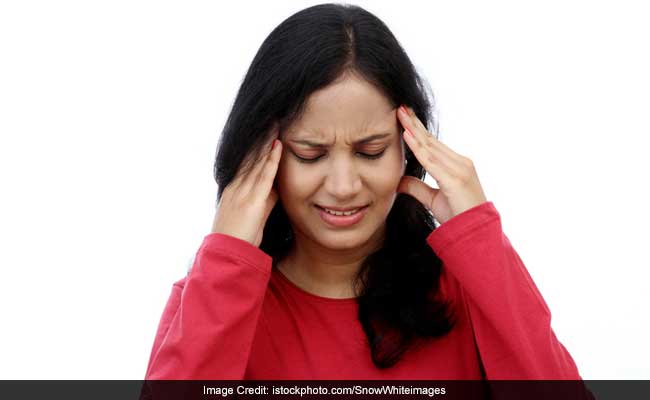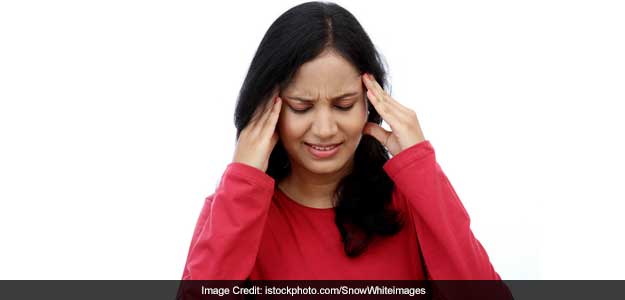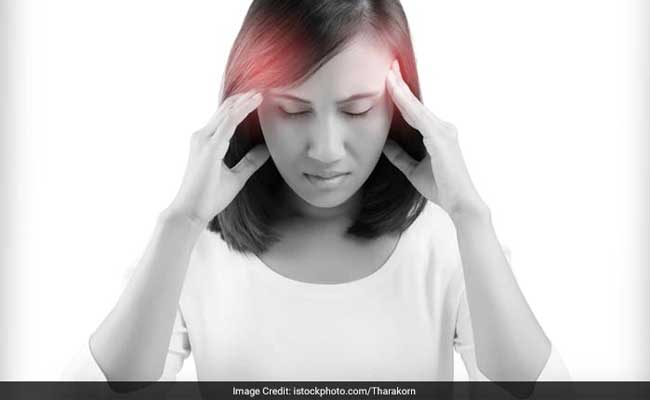Migraine
What is it?
Migraine is a neurological disorder that is characterised by severe and recurring headaches, often on one side of the head. The pain may be accompanied by nausea, vomiting or neurological symptoms such as flashing lights or tingling on the face and limbs. The patient feels discomfort in bright light and in loud sound areas. The pain may last from 4-72 hours, and may range from a sharp shooting pain to a dull ache. Though the attacks may begin at any age, young women are most susceptible.
What are the causes?
Migraine tends to run in families. It was earlier believed to be caused by unexplained swelling and contraction of blood vessels in the head. Recent research, however, suggests, that certain environmental stimuli cause an imbalance in the brain chemicals called neurotransmitters, which might then cause the blood vessels to expand and cause the pain. These stimuli or triggers may be unique for each individual. Some people may have a more sensitive nervous system than others, which makes them more vulnerable to these headaches.
What are the symptoms?
Though every individual may experience different symptoms, most people have a warning period or ‘aura’ before the onset of the actual headache. Symptoms of an aura include: Numbness or tingling of the face or arm. Usually this moves over one side of the body over 20 to 30 minutes. Blurred vision or silvery zigzag lines moving across the field of vision from one side to the other over 15-20 minutes (fortification spectra) Confusion or disorientation Depression Pain that worsens with physical activity Pain that hinders your regular daily activities Nausea with or without vomiting Extreme sensitivity to light (photophobia) and sound (sonophobia); even a small sound may irritate the patient. Patients, during a migraine attack, may retire to a dark, silent room during an attack. IrritabilityNot all migraine headaches are the same. Most people suffer from migraines without auras, which were previously called common migraines. Some have migraines with auras, which were previously called classic migraines. If you're in the second group, you'll likely have auras about 15 to 30 minutes before your headache begins. They may continue after your headache starts or even occur after your headache begins. These may include: Sparkling flashes of light Dazzling zigzag lines in your field of vision Slowly spreading blind spots in your vision Tingling, pins-and-needles sensations in one arm or leg Rarely, weakness or language and speech problems
What are the risk factors?
Many people with migraines have a family history of migraine. If both your parents have migraines, there's a chance you will too. Even if only one of your parents has migraines, you're still at increased risk of developing migraines.You also have a relatively higher risk of migraines if you're young and female. In fact, women are three times as likely to have migraines as men are. Headaches tend to affect boys and girls equally during childhood but increase in girls after puberty.If you're a woman with migraines, you may find that your headaches worsen during menstruation. They may also change during pregnancy or menopause. Many women report improvement in their migraines later in pregnancy, but others report that their migraines worsened during the first trimester. If pregnancy or menstruation affects your migraines, your headaches are also likely to worsen if you take birth control pills or hormone replacement therapy (HRT).
How is the diagnosis made?
There is no medical test that can specifically diagnose migraine. The physician may have to take a complete medical history of the patient to make a diagnosis and exclude other causes of headache. The main things that the doctor may want to know are: The location, severity, frequency and duration of the headache The age of onset of the headache The symptoms associated with the pain Precipitating factors like specific food or drink consumed before the headache. Accompaniments like fever, stiff neck or rash.
What is the treatment?
Treatment for migraine is aimed at providing immediate relief from pain in the attack. For this, drugs that constrict the blood vessels (sumatriptan or ergotamine), nonsteroidal anti-inflammatory drugs like ibuprofen, aspirin and naproxen, are prescribed. For best results, take pain-relieving drugs as soon as you experience signs or symptoms of a migraine headache. It may help if you rest or sleep in a dark room after taking them: Other pain-relievers like analgesics such as paracetamol with anti-nausea medications such as metoclopramide may be used too.Preventive medications can reduce the frequency, severity and length of migraines and may increase the effectiveness of pain-relieving medicines used during migraine attacks. Drugs that work in this way include propanolol (a "beta-blocker"), pizotifen, sodium valproate and some types of anti-depressants (TRI-cyclics). These drugs are taken continuously rather just during an attack. Certain antidepressants are good at helping prevent all types of headaches, including migraines. These medications are considered among first-line treatment agents and may reduce migraines by affecting the level of serotonin and other brain chemicals. Newer antidepressants, however, generally aren't as effective for migraine prevention.Since a migraine attack cannot be totally avoided, the patient should take care that of the precipitating factors are reduced to the minimum. They must avoid foods that trigger an attack. Regular exercises and stress management are helpful.
What are the prevention?
Whether or not you take preventive medications, you may benefit from lifestyle changes that can help reduce the number and severity of migraines. One or more of these suggestions may be helpful for you: Avoid triggers If certain foods seem to have triggered your headaches in the past, eat something else. If certain scents are a problem, try to avoid them. In general, try to establish a daily routine with regular sleep patterns and regular meals. Exercise regularly Regular aerobic exercise reduces tension and can help prevent migraines. If your doctor agrees, choose any aerobic exercise you enjoy, including walking, swimming and cycling. Warm up slowly, however, because sudden, intense exercise can cause headaches. Reduce the effects of oestrogen If you're a woman with migraines and estrogen seems to trigger or make your headaches worse, or if you have a family history of stroke or high blood pressure, you may want to avoid or reduce the amount of medications you take that contain estrogen. These medications include birth control pills and hormone replacement therapy. Talk with your doctor about the best alternatives or dosages for you. Quit smoking If you smoke, talk to your doctor about quitting. Smoking can trigger headaches or make headaches worse.
What is the homecare treatment?
Self-care measures can help ease the pain of a migraine headache. Try these headache helpers: Keep a diary A diary can help you determine what triggers your migraines. Note when your headaches start, how long they last and what, if anything, provides relief. Be sure to record your response to any headache medications you take. Also pay special attention to foods you ate in the 24 hours preceding attacks, any unusual stress, and how you feel and what you're doing when headaches strike. If you're under stress, tell your doctor. Try muscle relaxation exercises Progressive muscle relaxation, meditation and yoga don't require any equipment. You can learn them in classes or at home using books or tapes. Or spend at least a half-hour each day doing something you find relaxing — listening to music, gardening, taking a hot bath or reading. Get enough sleep, but don't oversleep The average adult needs seven to nine hours of sleep a night. Rest and relax If possible, rest in a dark, quiet room when you feel a headache coming on. Place an ice pack wrapped in a cloth on the back of your neck and apply gentle pressure to painful areas on your scalp.
Migraine News More News
- This Smartphone App Can Help Reduce Migraine
- For Obese Migraine Sufferers, Losing Weight Can Decrease Headaches
- Migraine Found To Be Thrice As Common In Women: Study
- Migraine Can Put You At A Higher Risk Of Heart Diseases
- Medication For Controlling Migraine Pain Identified!
- Get Relief From Migraine Pain With This Surgery
- Migraine Affects 1 In 7 People! Dont Let It Get To You: Beat Migraine With These Home Remedies
- Are You Stressed About Your Finances? It May Increase The Risk Of Migraine
- Apollo Hospital Launches Migraine And Memory Loss Clinics
Migraine Videos More Videos
................... Advertisement ...................
................... Advertisement ...................
................... Advertisement ...................
................... Advertisement ...................






























